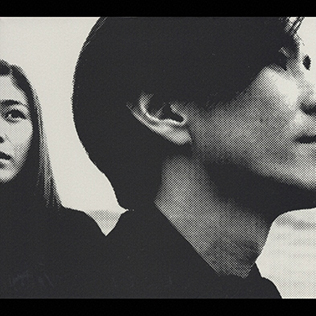
Tetsuya Komuro is a Japanese musician, songwriter and record producer. He is recognized as the most successful producer in Japanese music history and has introduced contemporary electronic dance music to the Japanese mainstream. He was also a former owner of the disco Velfarre located in Roppongi, Tokyo.

Love Enhanced Single Collection is the second greatest hits album by Japanese singer Namie Amuro. It was released on March 13, 2002, through Avex Trax. This was Amuro's first greatest hits album in about four years, since 181920. It was also her first greatest hits album since her return to the music scene. Although the album is labeled as a "singles collection," nearly all of the songs on the album have been re-recorded, re-mixed, or re-arranged, all of which remain exclusive to this album's release. In addition, only "lovin' it" was recorded as a single take. The album also contains the last of the work she created with her longtime creative partner Tetsuya Komuro.

Genius 2000 is the fourth studio album by Japanese recording artist Namie Amuro, released on January 26, 2000, through Avex Trax. The album was released three years after her last album, Concentration 20 (1997), and was produced by Tetsuya Komuro and Dallas Austin, marking her first collaboration with an American producer, the album spawned four singles: "I Have Never Seen", "Respect the Power of Love", "Something 'bout the Kiss" and "Love 2000".

Concentration 20 is the third studio album by Japanese singer Namie Amuro. It was released on July 24, 1997, by Avex Trax. The album's genre is a fusion of styles including pop, dance, rock, reggae and ska. Unlike Amuro's previous effort, Sweet 19 Blues, which primarily had lyrics written by Tetsuya Komuro, Concentration 20's lyrics were mostly written by Marc Panther. Komuro did, however, compose and arrange most of the album's songs and wrote the lyrics to three of them. It was Namie's second solo album since splitting up with Super Monkey's.

"How to Be a Girl" is the tenth single by Japanese recording artist Namie Amuro. It was released on May 21, 1997, through Avex Trax. It was used as the Bristol-Myers Sea Breeze commercial song, which was used for four commercials. The style of the song is similar to that of her single "A Walk in the Park," which has an evident electronic sound in the vein of her producer Tetsuya Komuro's group globe. Lyrics were even written by Marc Panther, who is another member of the group. This was the final single from her third studio album Concentration 20 (1997), which was released two months later. The single is a follow-up to "Can You Celebrate?", which became her biggest hit.
Tomomi Kahara born Tomomi Shimogawara on August 17, 1974 in Tokyo), is a Japanese pop singer. She is famous for working with Tetsuya Komuro who gave her much success in the 1990s, which led to her deep dip in popularity after 1999, the year in which she released her first non-TK produced album, One Fine Day. Tomomi Kahara and Tetsuya Komuro dated for a few years, but they suffered from personal problems which led to their breakup. After a period of sickness, Kahara's talent agency terminated her contract on June 29, 2007.

181920 is debut greatest hits album by Japanese singer Namie Amuro. Avex Trax released it in Japan on January 28, 1998, and it was later available in a variety of formats throughout Asia. The album contains Amuro's single releases from her debut studio album Dance Tracks Vol. 1 (1995) to her third album Concentration 20 (1997), as well as three tracks from her time with Toshiba-EMI. The album also included a new song called "Dreaming I Was Dreaming," which served as the only single from the album.

"Can You Celebrate?" is the ninth single by Japanese recording artist Namie Amuro. Serving as the second single from her third studio album Concentration 20, it was released on February 19, 1997, by Avex Trax. Its lyrics and composition was handled solely by Tetsuya Komuro. "Can You Celebrate?" is the best-selling single by a female Japanese solo artist, with sales of 2,296,200 copies. Additionally, it is ranked as the 14th best selling single of all time in the history of the Oricon Singles Chart.

"A Walk in the Park" is the eighth single by Japanese recording artist Namie Amuro from her third studio album Concentration 20 (1997). The song was released as the album's lead single on November 27, 1996. It was written, composed and produced by Tetsuya Komuro. The song is a dance track, which features instrumentation from guitars, synthesizers, organs, keyboards and drums. "A Walk in the Park" and "Can You Celebrate?" were both theme songs for Maxell UD commercials and Whisper was used as the background music for the Maxell MD74 commercial.

"Sweet 19 Blues" is the seventh single by Japanese recording artist Namie Amuro. It was composed, written and arranged by Tetsuya Komuro for her debut album of the same name. A month after its release, her label Avex Trax released the song as a recut single due to overwhelming demand. The song's subject and the album in general was about the melancholic passing of another sweet year of youth, which is a particularly Japanese obsession.

"Body Feels Exit" is Namie Amuro's debut solo single on the Avex Trax label. Released nine days after her only album with former label, Toshiba-EMI, "Body Feels Exit" debuted in the top three on the Oricon chart and would be her first of 24 consecutive top-ten solo singles.

"I Have Never Seen" is the 12th single by Japanese singer Namie Amuro. It was released by Avex Trax on December 23, 1998, as the lead single to her fourth studio album Genius 2000 (2000). The song was written and composed solely by Tetsuya Komuro. It was the first single released after Amuro's return from her yearlong maternity leave, and was released approximately one week before her well-publicized official comeback at the 49th NHK Kohaku Uta Gassen.

Never End is the 17th single by Japanese recording artist Namie Amuro, released on July 12, 2000, as the lead single from her 5th studio album Break the Rules. The track was made specifically for the G8 Summit that took place in Amuro's home prefecture Okinawa during July of that year. The single reached #2 on the Oricon Singles Chart and charted for 14 weeks, becoming Amuro's 16th consecutive top 10 solo single. "Never End" was Amuro's last CD single to premiere with over 100,000 copies in sales until "60s 70s 80s" in 2008.
"Love the Island" is the debut single of Japanese singer Ami Suzuki released on July 1, 1998 through True Kiss Disc, sub-label of Sony Music Entertainment Japan owned by Tetsuya Komuro.

Arisa is the debut studio album by Japanese recording artist Arisa Mizuki, released through Nippon Columbia on December 4, 1991. Arisa is predominantly a pop music album. It is written by an array of famous Japanese musicians, including Amii Ozaki, Princess Princess vocalist Kaori Okui, Takeshi Kobayashi, Tetsuya Komuro, and The Alfee guitarist Toshihiko Takamizawa. In its review of the album, CDJournal described Arisa as an "idol record" that can appeal to actual music lovers. The online magazine praised Mizuki's vocal ability for being "far greater than the typical teenager" and noted that the only apparent flaw was the album's lack of cohesion.

Globe is the debut studio album by Japanese band Globe. Released by Avex Trax on March 31, 1996, the album features the singles "Feel Like Dance", "Joy to the Love", "Sweet Pain", "Departures, and "Freedom". "Departures" sold over two million copies, becoming the second highest-selling single in Japan.

Arisa's Favorite: T.K. Songs is the second compilation album by Japanese recording artist Arisa Mizuki, released through Nippon Columbia on November 27, 1996. The twelve-track set is a collection of songs written and produced by Tetsuya Komuro, selected from Mizuki's past albums and singles. The compilation is Mizuki's last album on which she is credited as Arisa Mizuki.

"Feel Like Dance" is the debut single by Japanese band Globe. Written by Tetsuya Komuro, the single was released on August 9, 1995, by Avex Globe.

"Departures" is the fourth single by Japanese band Globe. Written by Tetsuya Komuro, the single was released on January 1, 1996, by Avex Globe.
Tetsuya Komuro Archives refers to two separate box set releases featuring songs from various artists that were produced by the retired Japanese musician Komuro Tetsuya. They were released on June 27, 2018, by the Japanese record label Avex Trax. The box sets were released as Tetsuya Komuro Archives "T" and Tetsuya Komuro Archives "K", with each box set containing fifty songs divided into four separate discs.

















